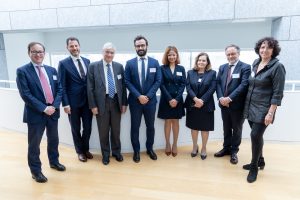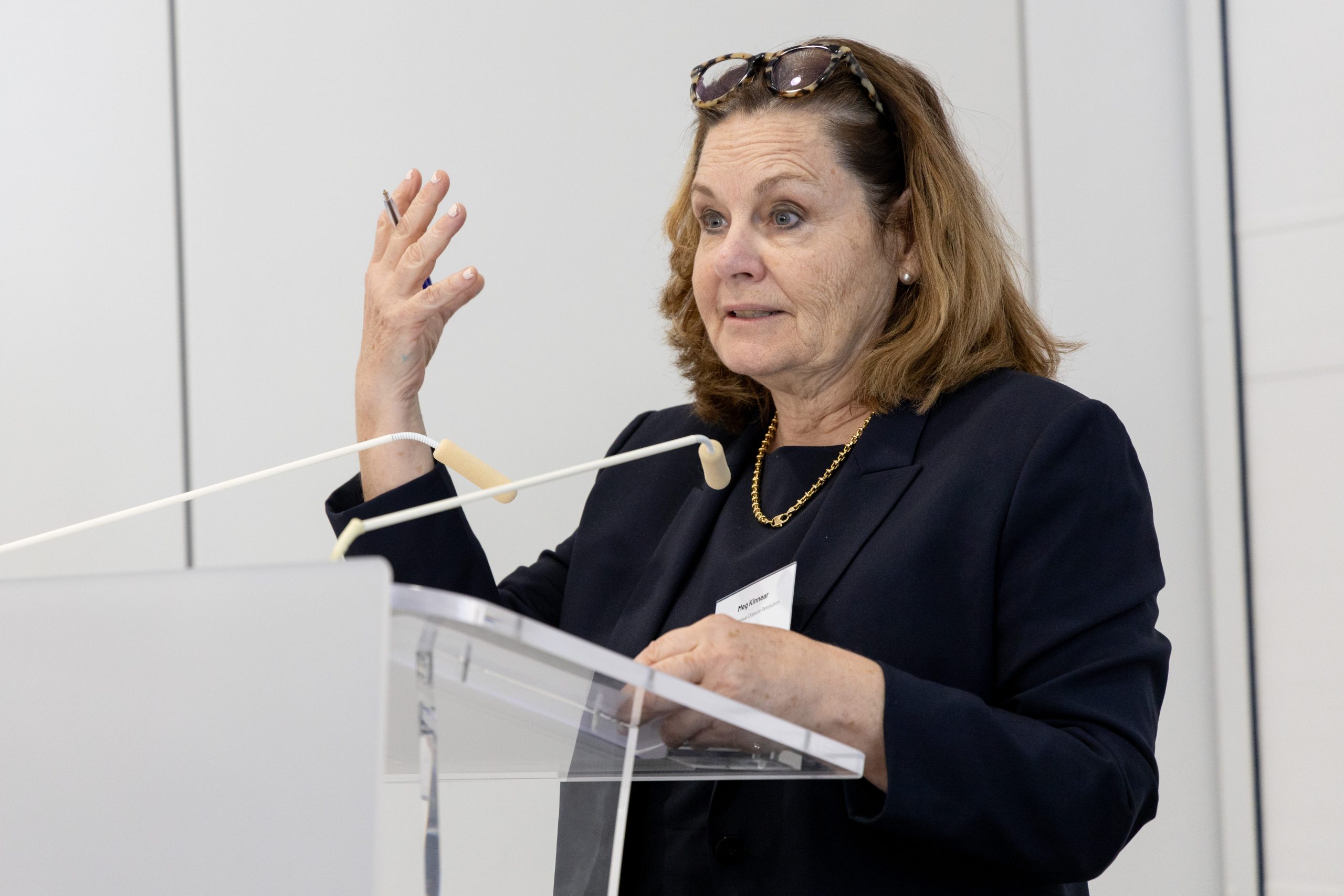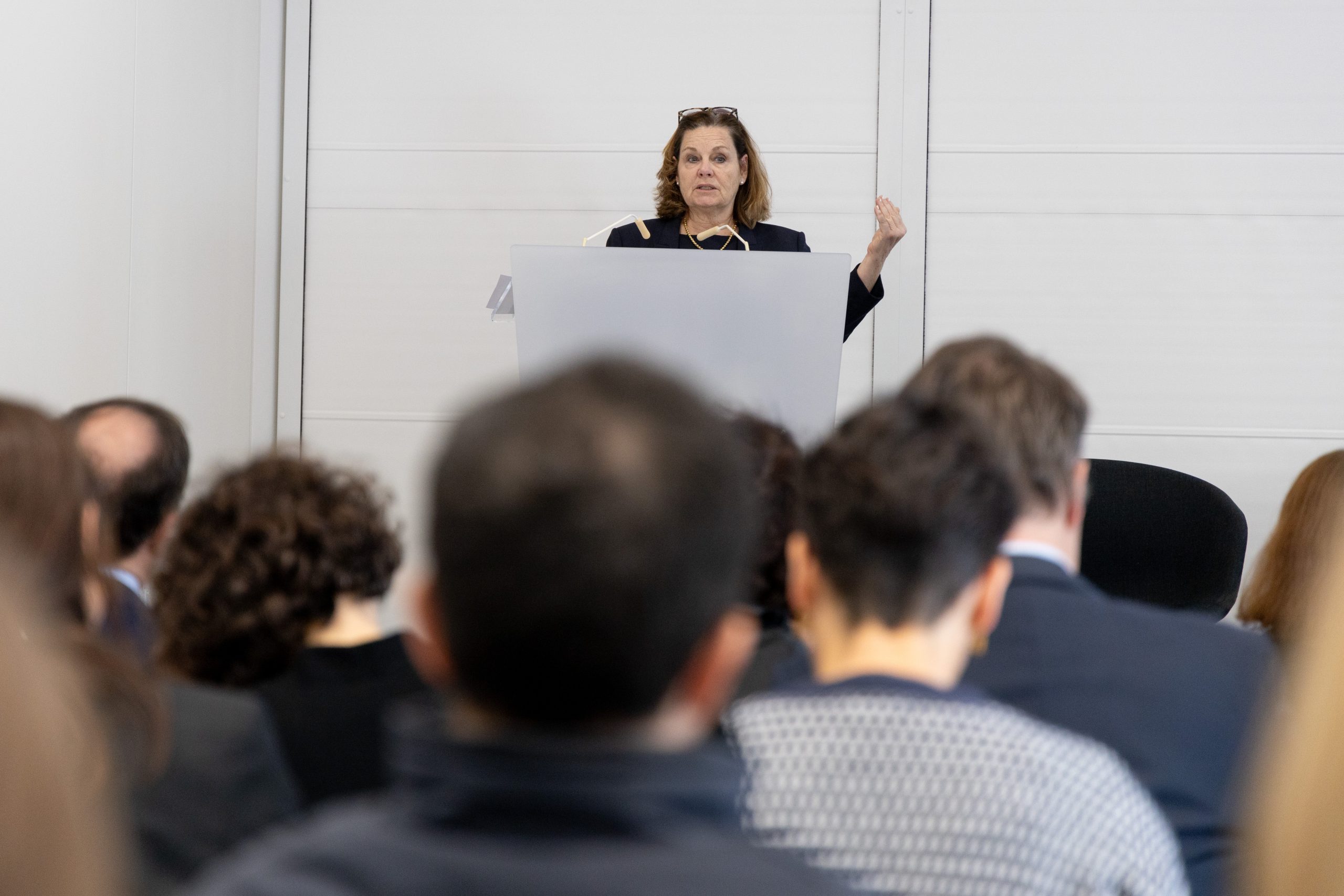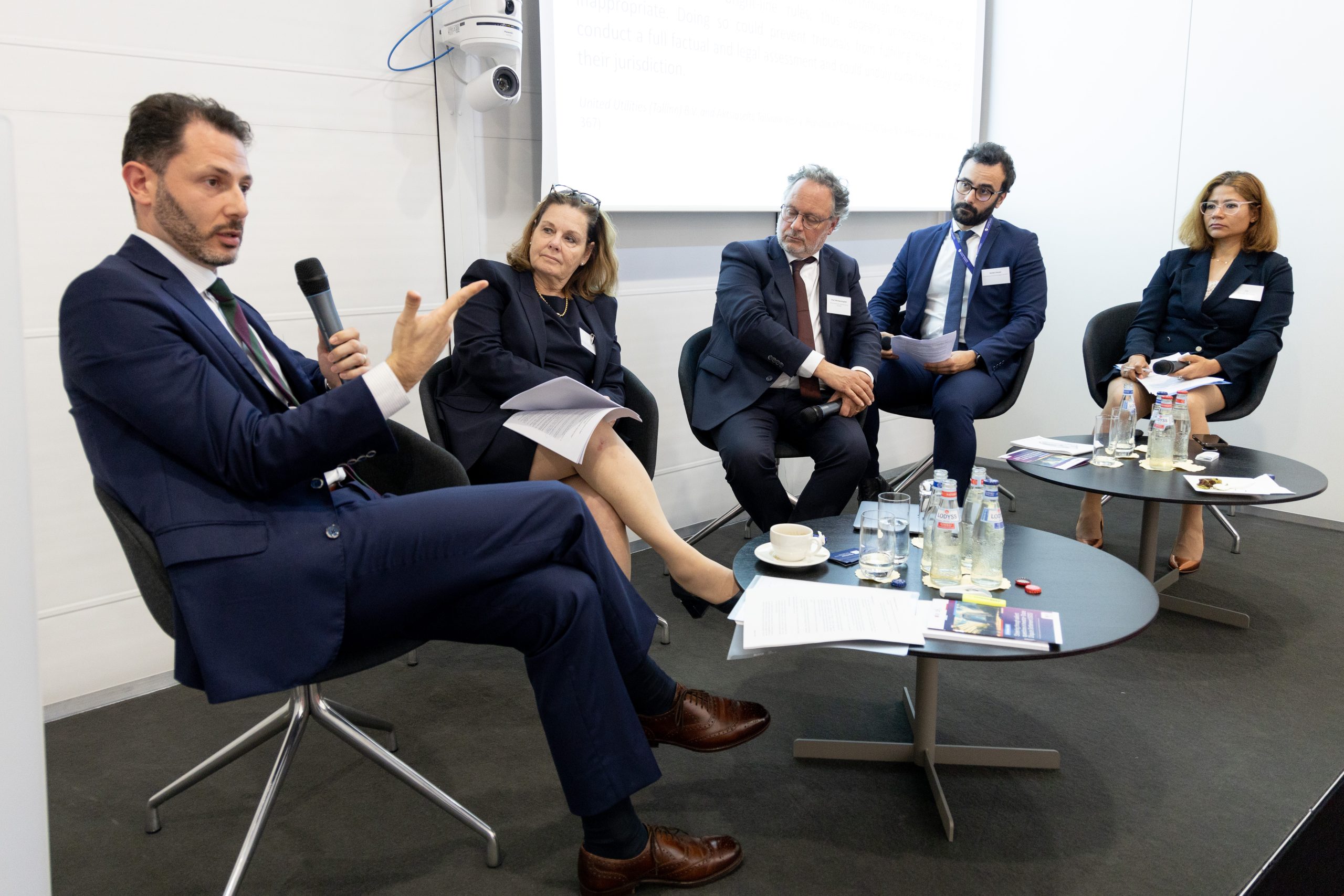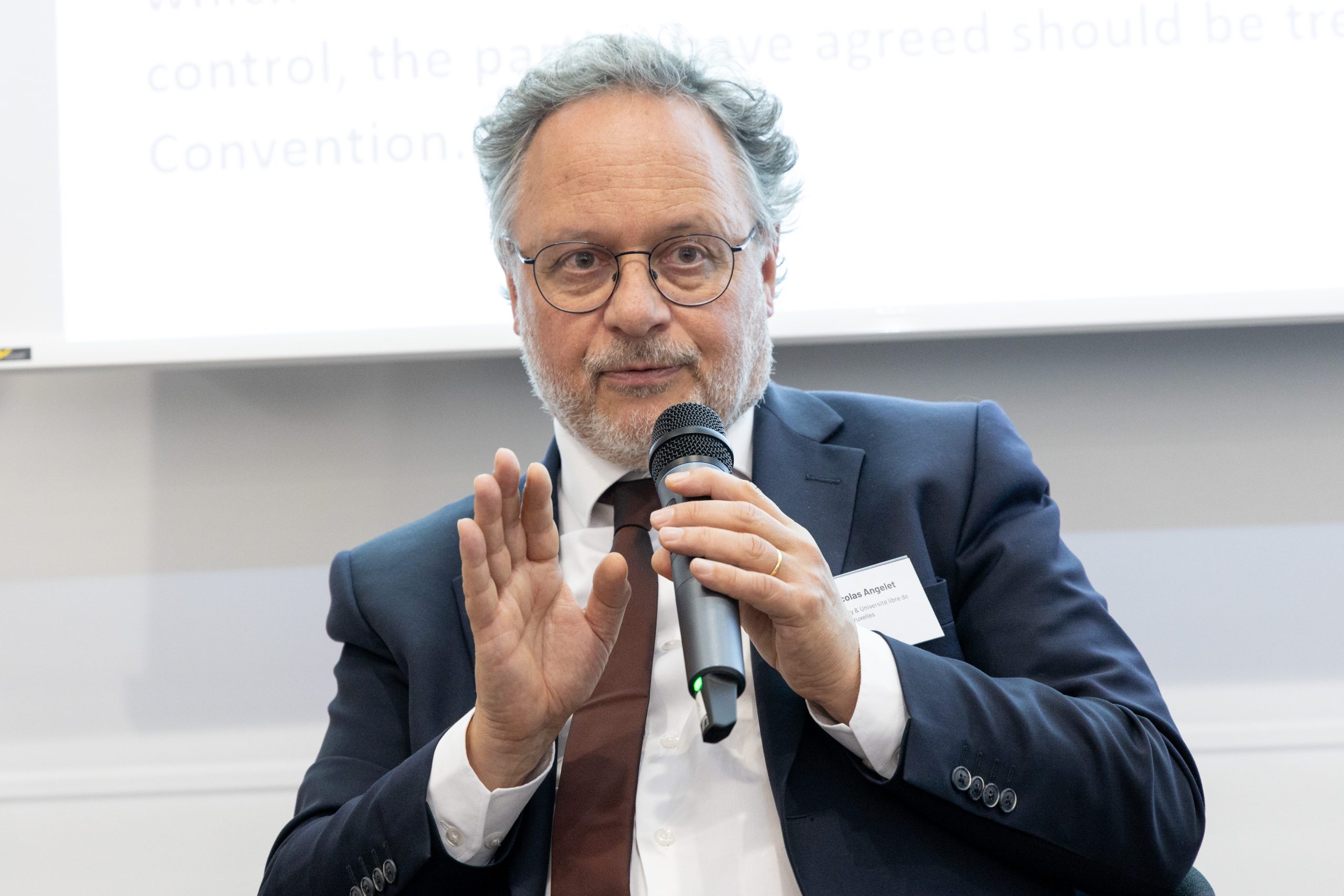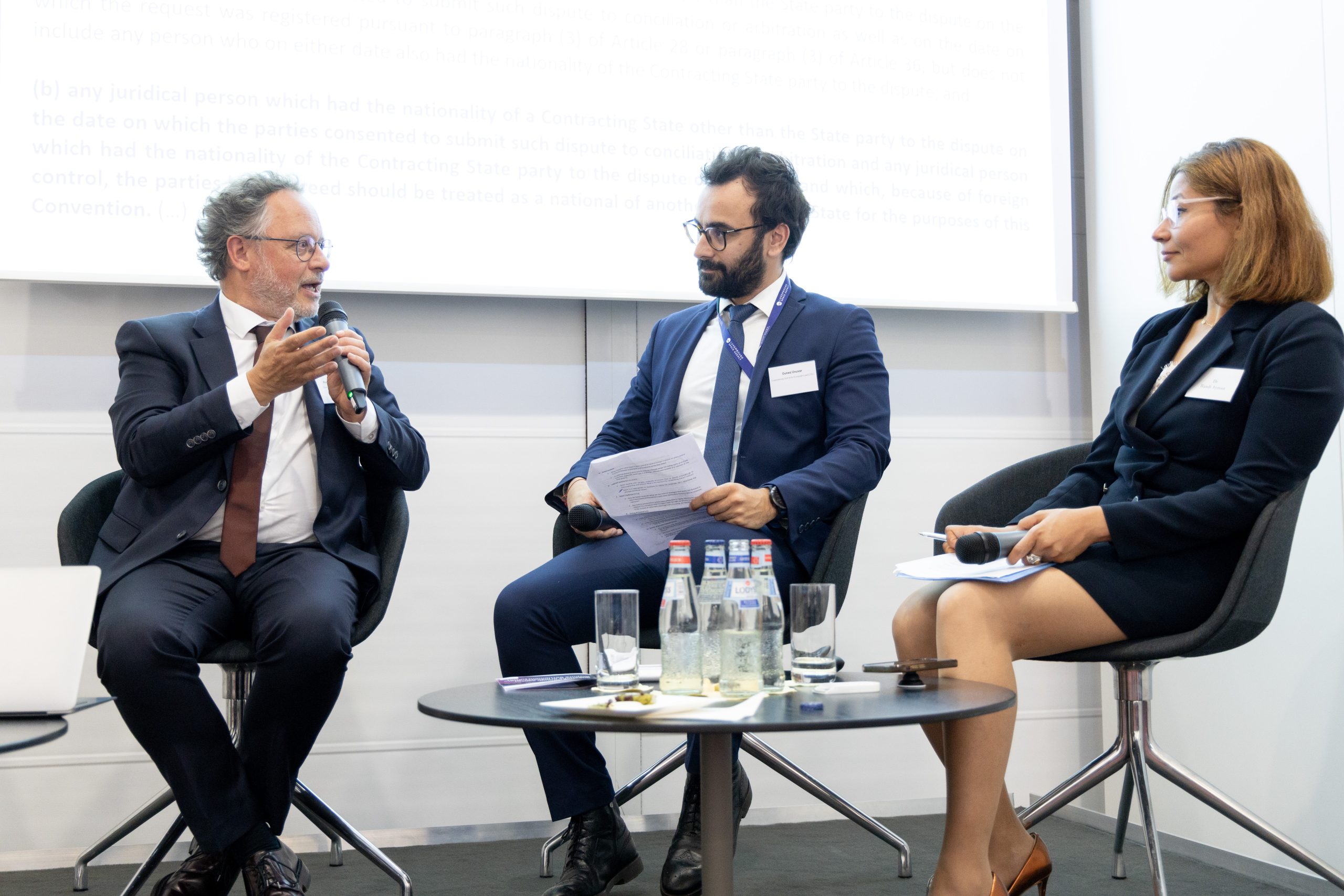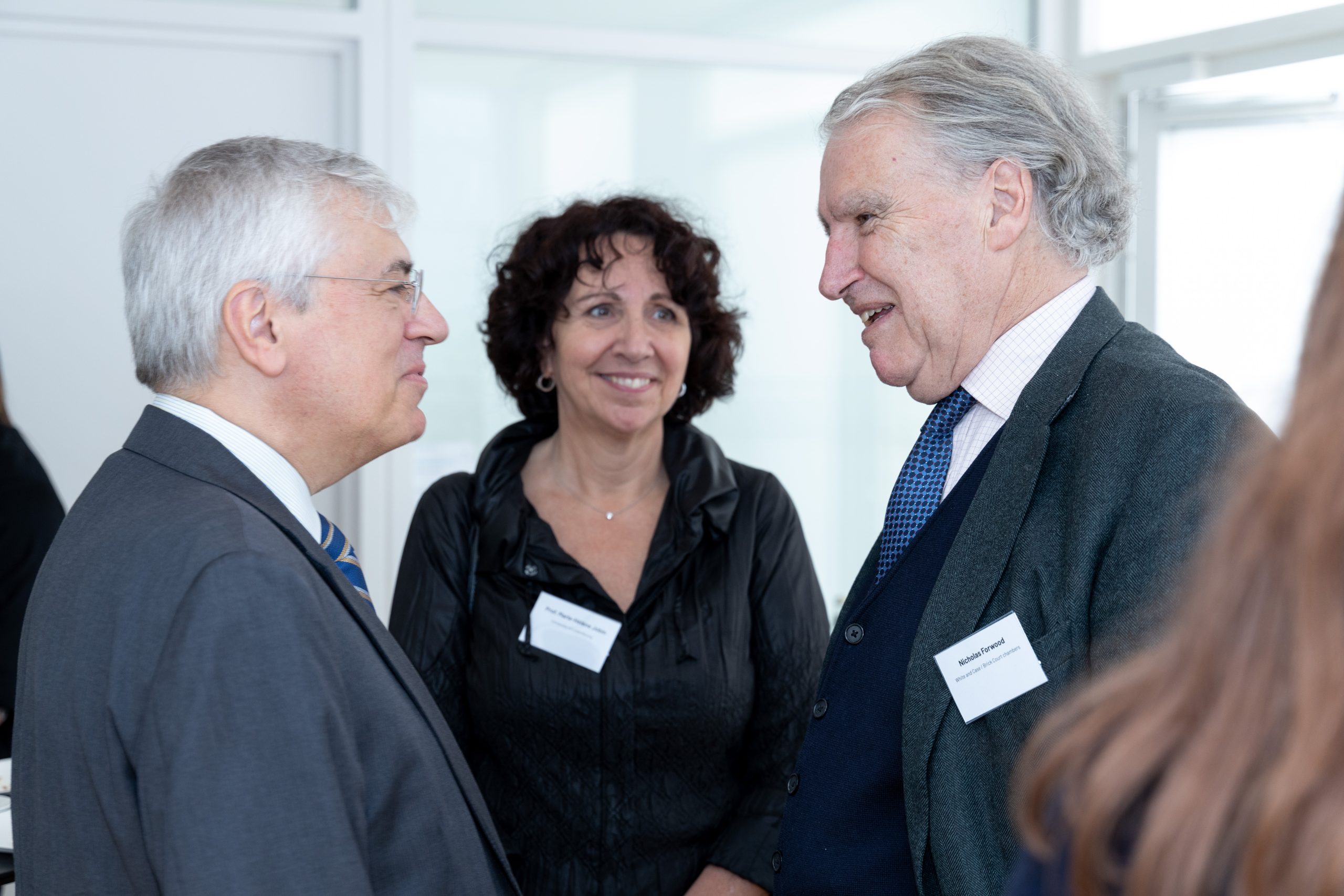On October 3, 2024, the Luxembourg Centre for European Law hosted a conference titled “Steering Through Salient Questions in ISDS,” where prominent experts in international arbitration gathered to address some of the most pressing and evolving issues in Investor-State Dispute Settlement. This half-day event gathered attendees from the Ministry of Foreign Affairs, the Court of Justice of the European Union, Luxembourgish Law firms and private investors, as well as members of the Faculty of Law, Economics and Finance (FDEF) offering insights into the ongoing reforms to the ISDS system, and into the complexities of foreign control and ownership.
The conference was opened by Prof. Takis Tridimas, Director of the LCEL following a keynote speech by Ms. Meg Kinnear, former vice president of the World Bank Group and former Secretary-General of the International Centre for the Settlement of Investment Disputes (ICSID). This was followed by a panel discussion focusing on foreign control and ownership, both of which provided valuable takeaways for participants.
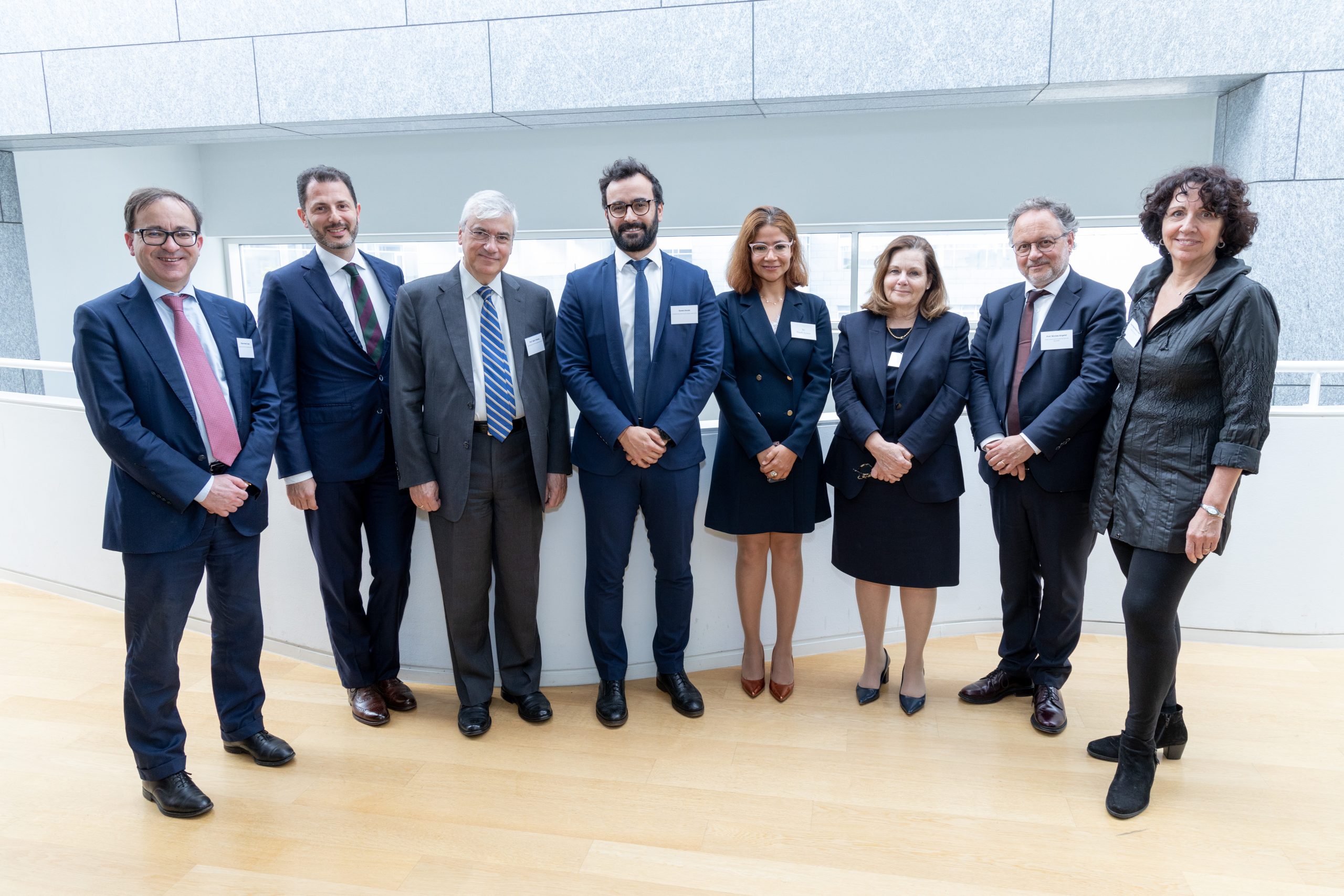
Prof. Pierre.Henri Conac, Dr Paschalis Paschalidis, Prof. Takis Tridimas, Dr Günes Ünüvar, Dr Randi Ayman, Ms. Meg Kinnear, Prof. Nicolas Angelet, Prof. Marie-Hélène Jobin
Keynote Address: ISDS Reform – Too Much, Too Little, or Just Right?
The conference began with an insightful keynote speech from Meg Kinnear, who brought her extensive experience at ICSID and as counsel in investment arbitration to examine the current state of ISDS reforms. Ms Kinnear’s speech explored the crucial question of whether recent reforms to international investment law have gone too far, not far enough, or struck the right balance. She reflected on how ISDS reform has been a topic of intense debate for more than two decades, driven by concerns over transparency, fairness, and the consistency of arbitration awards.
In her speech, Ms Kinnear provided an overview of the international investment law discipline from its modern inception in the 1950s, through its early days of implementation, to today’s challenges. She underlined the diffuse structure of the ISDS system, without a central authority to regulate or harmonize investment practice. As a result, the current system consists of over 2,500 bilateral investment treaties (BITs), each with its own provisions and dispute resolution mechanisms. She discussed how this “patchwork” has led to a lack of uniformity in text and in practice and noted that, despite efforts by international organizations such as the United Nations Commission on International Trade Law (UNCITRAL), the Organization of Economic Cooperation and Development (OECD) and ICSID, achieving coherence remains a significant challenge.
With respect to the procedural aspects, Ms Kinnear highlighted the 2022 ICSID Rule Amendments, which introduced key reforms to make arbitration more efficient, transparent, and accessible. These reforms include new rules on third-party funding, security for costs, and mediation, as well as reduced timeframes and expedited proceedings aimed at addressing long-standing concerns over the cost and duration of arbitration proceedings. The amendments also introduced enhanced disclosure requirements for arbitrators, tackling issues of ethics and impartiality in investment disputes.
However, Ms Kinnear also pointed out the potential risk of fragmentation, particularly with the proliferation of new international investment agreements, which introduce more detailed substantive and procedural provisions, but may ultimately add to the complexity of the system. In her conclusion, Ms Kinnear emphasized that while many recent reforms are steps in the right direction, there is still work to be done in ensuring harmonization across treaties and resulting caselaw. She also stressed the importance of continued dialogue and coordination between states and international organizations to ensure that reforms contribute to the long-term sustainability of ISDS.
Panel Discussion
The panel discussion titled “Foreign Control and Ownership: The Quest to Identify a Moving Target” took place following the keynote address. Moderated by Dr Randi Ayman (scientific organiser of the conference) and Dr Günes Ünüvar, the session brought together legal experts to explore the intricate issues surrounding the nationality and control of foreign investors in ISDS claims. Panelists included Ms. Meg Kinnear, Prof. Nicolas Angelet from Ghent University, and Dr Paschalis Paschalidis from Arendt & Medernach.
The panel began by discussing the determination of nationality in ISDS cases, which remains one of the most complex aspects of international arbitration. A foreign nationality is a fundamental requirement for an investor to bring a claim under most international investment agreements (IIAs), but determining an investor’s nationality in practice is not always straightforward. The panelists examined how tribunals assess nationality, including in cases involving dual or multiple nationalities and complex corporate structures, where multiple layers of ownership may complicate the determination.
A significant portion of the discussion focused on the concept of control in investment arbitration. As investment treaties rarely define what constitutes control, tribunals have had to remain flexible when determining control. The panelists highlighted notable cases where tribunals assessed control based on case-by case factors such as voting rights, decision-making powers, the de facto vs legal siège social and the place of incorporation.
The discussion then shifted to Denial of Benefits (DOB) clauses, a tool allowing states to deny investment treaty protections to investors who do not have substantial business activities in their host country. The panelists noted that the inclusion and invocation of DOB clauses has become more common, particularly in treaties where states are keen to limit treaty shopping by foreign investors. The conversation also touched on corporate restructuring, with panelists debating when restructuring for the purpose of gaining treaty protection constitutes an abuse of process.
Notable Insights and Practical Takeaways
Throughout the panel, practical insights surfaced for practitioners navigating ISDS disputes. Panelists highlighted the need for investors to carefully consider the timing of any nationality planning or corporate restructuring to avoid potential challenges to their standing under investment treaties. Additionally, the panel discussed the strategic use of DOB clauses by states and how they can serve as a defense mechanism against opportunistic claims.
The discussion also stressed the evolving nature of the ISDS system. While reforms are being implemented at both procedural and substantive levels, the system remains complex and subject to different interpretations from treaty to treaty.
Seminar on the Impacts of NAFTA Chapter 11
On 2 October, Ms Kinnear also gave a seminar on the lasting effect of the investment chapter of the North American Free Trade Agreement (NAFTA) to researchers of the Luxembourg Centre for European Law, and the Faculty of Law, Economics and Finance. As one of the first investment treaties to be litigated, NAFTA Chapter 11 created early jurisprudence on the minimum standard of treatment, expropriation and national treatment. It was especially notable procedurally, from leading the move to transparency in arbitration, devising tools such as Notes of Interpretation by States, and including devices such as the “no U turn” and limitations periods in treaties. Although NAFTA has now been replaced by the United States-Canada-Mexico free trade agreement (USMCA), NAFTA Chapter 11 continues to have a broad impact on the design of modern treaties and the interpretation of investment law.
Photo credit: © Michel Brumat
